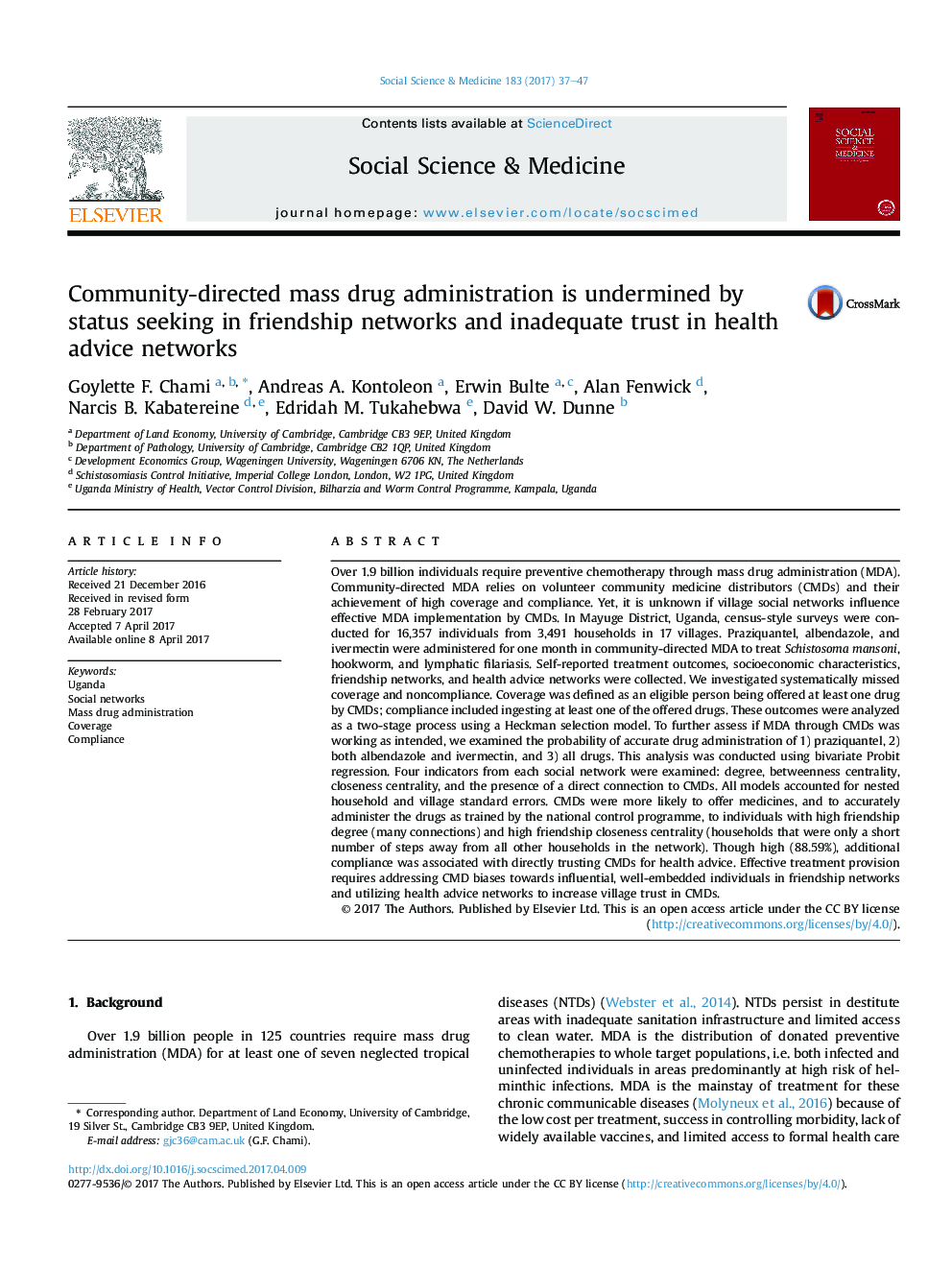| کد مقاله | کد نشریه | سال انتشار | مقاله انگلیسی | نسخه تمام متن |
|---|---|---|---|---|
| 5046551 | 1475986 | 2017 | 11 صفحه PDF | دانلود رایگان |
- Evaluation of mass drug administration implementation using social networks.
- Evidence of social biases and status-seeking from community medicine distributors.
- Coverage and compliance with mass drug administration for 16,357 individuals.
- Impact of friendship and health advice networks on treatment probability.
- Overlap of network status and formal social status in rural villages.
Over 1.9 billion individuals require preventive chemotherapy through mass drug administration (MDA). Community-directed MDA relies on volunteer community medicine distributors (CMDs) and their achievement of high coverage and compliance. Yet, it is unknown if village social networks influence effective MDA implementation by CMDs. In Mayuge District, Uganda, census-style surveys were conducted for 16,357 individuals from 3,491 households in 17 villages. Praziquantel, albendazole, and ivermectin were administered for one month in community-directed MDA to treat Schistosoma mansoni, hookworm, and lymphatic filariasis. Self-reported treatment outcomes, socioeconomic characteristics, friendship networks, and health advice networks were collected. We investigated systematically missed coverage and noncompliance. Coverage was defined as an eligible person being offered at least one drug by CMDs; compliance included ingesting at least one of the offered drugs. These outcomes were analyzed as a two-stage process using a Heckman selection model. To further assess if MDA through CMDs was working as intended, we examined the probability of accurate drug administration of 1) praziquantel, 2) both albendazole and ivermectin, and 3) all drugs. This analysis was conducted using bivariate Probit regression. Four indicators from each social network were examined: degree, betweenness centrality, closeness centrality, and the presence of a direct connection to CMDs. All models accounted for nested household and village standard errors. CMDs were more likely to offer medicines, and to accurately administer the drugs as trained by the national control programme, to individuals with high friendship degree (many connections) and high friendship closeness centrality (households that were only a short number of steps away from all other households in the network). Though high (88.59%), additional compliance was associated with directly trusting CMDs for health advice. Effective treatment provision requires addressing CMD biases towards influential, well-embedded individuals in friendship networks and utilizing health advice networks to increase village trust in CMDs.
Journal: Social Science & Medicine - Volume 183, June 2017, Pages 37-47
